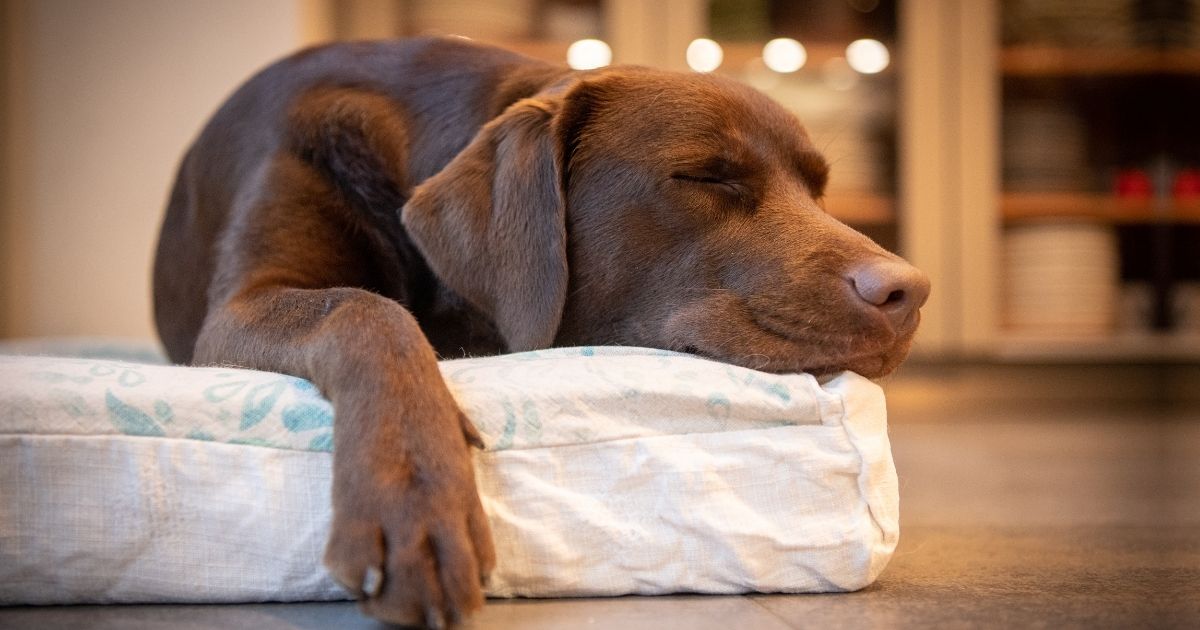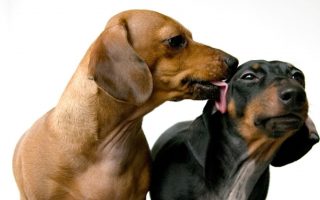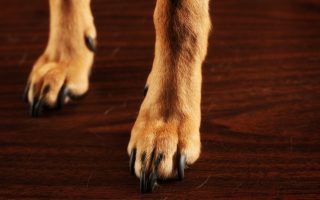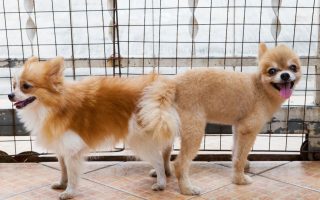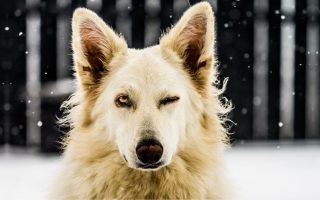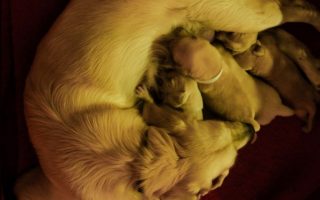This question has definitely popped up in your mind a couple of times, especially if your newly adopted fur baby has been giving you sleepless nights.
Are dogs nocturnal?
The short and simple answer to this question is – no, dogs are not necessarily nocturnal.
Dogs have the ability to easily acclimatize their day-night cycles to the activities of their human owners, thereby allowing you to get all the rest you need at night.
The complete answer, however, is a little more intricate than this. If you’d like to know more, read on.
Below, we will take a look at some sleep patterns that dogs have and how to help you understand your pet better.
Animals And Their Sleep Pattern
Before getting into the topic of dogs and their sleep patterns, let’s take a brief look at the general sleeping behaviors or patterns in animals.
Animals including pets like cats and dogs can be nocturnal, crepuscular, or diurnal.
Nocturnal
Nocturnal animals such as rats and owls get all the sleep they need during the day and become more alert and active at night.
Crepuscular
Crepuscular animals are typically active during the daytime and nighttime.
Crepuscular animals can be subdivided into:
- Matutinal: Matutinal animals are known to be most active at dawn.
- Vespertine: Vespertine animals are known to be active at dusk.
Diurnal
Similarly, with humans, diurnal species are active at dawn and less active or completely inactive at dusk.
Pets such as cats and dogs have a tendency to become diurnal once they have adapted to their owner’s sleeping routines. Nevertheless, they can also be nocturnal.
This mini glossary overview will give you a little insight as to what we’ll discuss next.
Are Dogs Nocturnal in Nature?
Dogs are not nocturnal in nature. However, this is largely dependent on their immediate environment, being active only at dusk or only during the day and at night.
Dogs, similarly with other domesticated animals, get used to their owners sleeping patterns and so they sleep at night and become more active during the day just like humans.
Are Dogs Diurnal?
So if you are most awake in the daytime and get into bed at night, your fur baby will most definitely adapt to your sleeping schedule and gradually become diurnal.
If your dog begins to imitate your schedule, that’s probably best for everyone as there’ll be less nighttime barking and more sleeping.
Nevertheless, if your dog is more active during the night, whereas you follow a strict diurnal pattern, something just might be wrong and you may have to contact the vet soon.
Nocturnal Dog Breeds
While canines typically aren’t nocturnal, certain dog breeds are more likely to stay awake at dusk than others.
These dog breeds include:
- Great Pyrenees
- Maremma Sheepdog
- Border Collie
- American Black and Tan Coonhound
- Tibetan Mastiff
- Belgian Malinois
- Komondor
- Berger Picard
- Clumber Spaniel
Outstandingly, one phenomenon that unites these breeds is the fact that they all require lots of exercise.
If these dogs do not get as much exercise as they need during the day, they are bound to be energetic during the night as they need to expel all that built-up energy.
So, if you intend to have a good night’s sleep, it’s advisable that you see to your dog’s physical activity during the day.
The same goes for other dog breeds, particularly breeds that have been bred for the purpose of herding or sled-pulling.
This simply means that working breeds are more likely to be immensely active as they have higher energy levels.
Dogs that reside in the wild have the tendency to be nocturnal too. This is mostly because of stray cats that are known to wander during the night.
How Long Do Dogs Sleep?
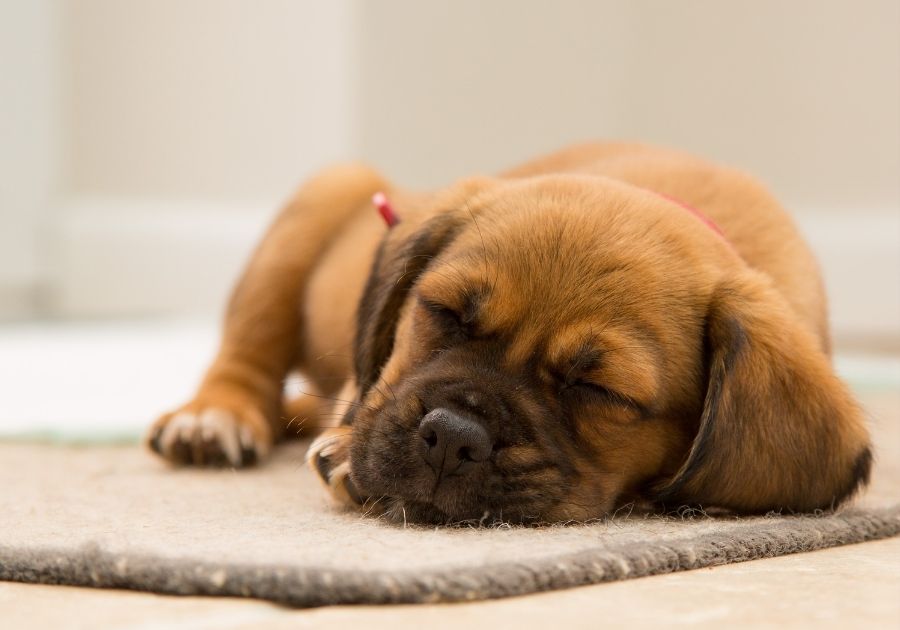
As a matter of fact, dogs sleep long! Dogs are known to sleep for longer hours than humans do, ranging from 12 to 14 hours each day.
Larger breeds of dogs tend to sleep longer than their small counterparts, while puppies are said to be the absolute sleepiest—their sleep-time ranging from 18 to 20 hours per day!
Puppies exhaust most of their energy playing and exploring. This explains why they need so much sleep to make up for all the energy lost.
Remarkably, even though dogs ease into their owner’s sleeping patterns seamlessly, their sleeping pattern differs to some extent.
Based on statistics from the American Kennel Club, dogs spend a mere 10% of their sleep time in a phase called rapid-eye-movement (REM), while humans spend 25% of their sleep time in this phase.
You probably didn’t know this but during the REM phase, the animal’s eyes start to roll randomly under their lids. Dreams also take place during the REM phase.
In any case, the short REM phase of dogs is a result of their unstable sleep patterns. Canines are known to doze off at any time they please.
Dogs also have the ability to wake up suddenly and become very alert.
And due to their fluctuating sleep patterns, dogs need more sleep to make up for the lack of REM sleep.
Ultimately, dogs have a more unbalanced sleep pattern, whereas humans can sleep for about 7 to 9 hours per day.
The numbers mentioned above pertain to healthy dogs. The duration of sleep can be significantly affected by sleep disorders.
Dogs with certain conditions such as narcolepsy, for instance, may randomly fall asleep at dawn or constantly be in a drowsy state.
On the other hand, other health issues such as itching and pain may act as a hindrance to sleep and cause sleep disorders.
Do Dogs Sleep At Night?
Dogs sleep intermittently, so they tend to wake up randomly in between hours of sleep throughout the night.
Nevertheless, If you ensure that your dog gets as much exercise as he needs and try to adapt them to your daily routine, there’s a high possibility that you’ll get sound sleep during the night.
How Do Dogs Act When They Sleep?
In order to be certain that your dog gets as much rest as his body requires, it’s important to monitor their behavior while they’re asleep.
Here are a few things to look out for:
- Extreme Twitching: Unnecessary twitching may be indicative of a seizure. If your fur baby is not responding to attempts to wake them up or even the sound of their name, contact a vet immediately.
- Sleeping to the Side: When your dog assumes this sleeping position, it means he feels comfortable and safe. It is said that this position exposes their vital organs making them more susceptible to danger.
- Digging or Circling: Dogs like to dig into their beds in order to feel more snuggly and comfortable. This behavior is completely normal. However, if your pooch starts to circle non-stop before sleep, there might be a problem- like body aches.
Recommended:
Why Do Dogs Bark In Their Sleep? Reasons & What To Do
Conclusion
In summary, dogs are not exactly nocturnal or diurnal. The best way to describe dogs in their natural or wilder state is “crepuscular”.
Nevertheless, they are social sleepers and will happily adapt to their owner’s sleeping patterns, provided they get as much exercise as they need.
If you’re a pet parent to an adult dog who doesn’t want to sleep throughout the night anymore or take their usual daytime naps, you might want to consider possible health issues or Enhance their exercise schedules.
You May Also Like:
Why Do Dogs Sleep With Their Bum Facing You?
References & Notes
- Wikimedia Foundation, “Nocturnality,” Wikipedia, 9 February 2022, https://en.wikipedia.org/wiki/Nocturnality.
- Alexa Fry, “The Connection Between Animal and Human Sleep,” Sleep Foundation, 17 February 2021, accessed 19 March 2022, https://www.sleepfoundation.org/animals-and-sleep/connection-between-human-and-animal-sleep.
- Lynn M. Hayner, “5 Dog Breeds Who Never Need a Nap,” Dogster, 10 June 2016, accessed 19 March 2022, https://www.dogster.com/lifestyle/5-breeds-who-never-need-a-nap.
- Robert DiGiacomo, “Should I Let My Dog Sleep Late Every Day?,” 19 February 2020, accessed 19 March 2022, https://www.akc.org/expert-advice/health/why-do-dogs-sleep-so-much/.
- Wikimedia Foundation, “Crepuscular animal,” Wikipedia, 9 February 2022, https://en.wikipedia.org/wiki/Crepuscular_animal.

